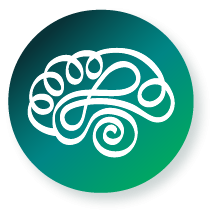Music needs no introduction or explanation for its use in therapy, but musical experience does. It is the experience that music creates that is therapeutic for the mind and body. It is important to understand the basics of how music is used as therapy in its capacity to be inclusive, integrative and responsive to deal with physio-psycho-socio-educational issues of day-to-day life.Music Therapy in Holistic HealthcareIn a holistic approach towards health, our physical and emotional well-being are conceived as intertwined. The distress caused by emotional factors is always linked with a chemical imbalance in the brain and body. Medication is a way to treat the condition of neurochemical imbalance. However, its side effects on many occasions are difficult to rule out. Music therapy as an allied healthcare practice can act as an agent to intrinsically stabilize or change the mood and emotion causing distress to the body.A young man of early 20s who had been admitted in a palliative care unit of a renowned hospital in a city in India for his last phase of treatment and care, shared his experience of music therapy in an introspective report as “music therapy helped me to adapt with the disease, taught me to prioritize spiritual dimension of life, it soothed me, helped me to develop the realization…when nobody around, I have my music… I am ready to accept the inevitable.”Music Therapy- What does it serve?There are several misconceptions about the practice of music therapy. First of all, the client doesn’t need to have musical ability to benefit from music therapy. There is a difference between traditional music-based healing and music as therapy, which is a multidisciplinary field of allied health science. It refers to the clinical and evidenced-based practise of music as a medium of therapeutic intervention by a trained and certified professional music therapist. Music or its elements are implemented through carefully designed therapeutic techniques to give a therapeutically appropriate experience within an evolving relationship between client and therapist. The process in clinical context includes the stages of assessment, intervention and evaluation with clearly stated individualized therapeutic goals and objectives.Music therapy as an approach is integrative and inclusive in the context of health care, can get involved in interdisciplinary treatment planning, evaluations and follow up. It is often used to support or facilitate the process and outcomes of other therapies like speech therapy, occupational therapy, special education etc. Because of the flexibility and adaptability of music as a medium of communication in therapy, it easily gains the attention and acceptance of clients. In children, the unique music experience in an intentional and developmentally appropriate manner brings change to the behaviour, facilitates developmental skills and enhances the quality of life of the child and family.The other creative modalities, like dance and movements, arts, storytelling, role play, etc., are often integrated within the domain of music therapy practice, facilitate multisensory experiences. Music in the form of responsive therapy- medically, psychologically and socio-culturally, structured and adapted through musical elements, helps to build and strengthen the mutually responsive connection between therapist and client.Effects of Music Therapy on ChildrenIn my experience of practicing music therapy with children with special needs- music gives personal direct access to their World, facilitates unconditional acceptance by children, helps to form emotional bonding and secure attachment faster than any other medium. The overall positivity associated with the process of music-making in therapy accelerates the achievement of therapeutic goals and objectives.Often received comments from parents like -“my child waits for this session through the week” “my child is better adjusted in school.”“my child’s mathematical ability has increased after joining music therapy.” “There are lots of changes in mood and behaviour that helped my child to adjust with other therapies.”“ Music helped me to get involved more with the interventions that my son is going through..… I feel much secure now.” “I observe an overall positive change in my daughter in all aspects…I think it is due to the effects of music.” Advantages of Music TherapySome of the unique features and advantages of music therapy for children suffering from any disability or emotional or behavioural problems includeEnhances imagination and creativity by giving space for creative self-expression at their level.Gives multisensory experiences as the brain as a whole receives and responds to music.Gives stability to gross and fine motor movements; body posture and balance.Encourages flexibility of thoughts and behaviours.Facilitates verbal and non-verbal communication skills in a unique manner.Develops awareness of the environment in a unique manner.Teaches utilization of space in social interaction.Indulges freedom as well as a sense of security in a musical context.Helps to develop emotional regulation.Helps to develop self-regulation.Boosts self-esteem.The melody and rhythm of music bind the child- therapist, child- family, child- peers through uniquely created musical experiences.Explores the cause behind a clinical symptom in a psychosocial context.Safely be used with children for the diagnosis of a problem.Music has no side effects! Directly linked to overall enhancement and upliftment of life and related conditions.The positive impact of music in people lives encompassing a wide range of conditions and circumstances are well documented through research evidence.Music Therapy is a lot more than relaxation…. Music therapy functions at three levels- restoration, maintenance and improvement of physical and mental health. The therapeutic properties and applications of music can do much more than what we believe or simply associate with relaxation or unwinding emotions. Music therapy practice can be employed and integrated at a variety of places, including psychiatric hospitals, rehabilitation centres, medical hospitals, outpatient clinics, day care treatment centres, agencies serving developmentally disabled persons, community mental health centres, drug and alcohol programs, old age homes, nursing homes, hospice programs, correctional facilities, halfway houses, schools, and even in private practices.



